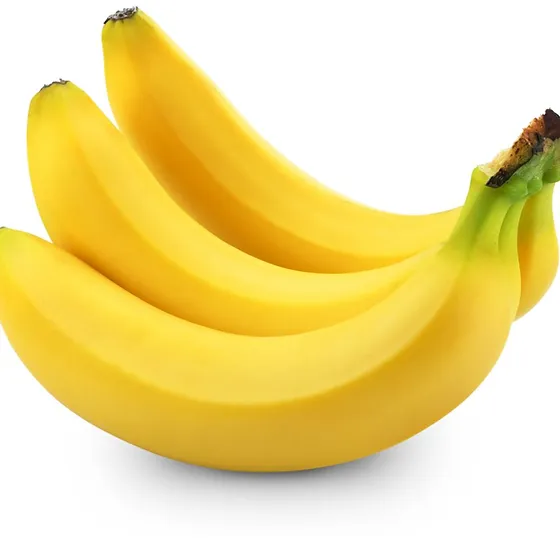
Banana is one of a high caloried tropical fruits. 100 grams of its flesh carries 90 calories. Nonetheless, it packed with numerous health benefiting phytonutrients lke dietary fiber, anti-oxidants, minerals, and vitamins.
Banana fruit is composed of soft, easily digestible flesh made up of simple sugars like fructose and sucrose that upon consumption instantly replenishes energy and revitalizes the body. Thus, for these qualities, it is one of the favorite quick bites among athletes to get instant energy. It is also one of the recommended supplement food included in the treatment plan for under-nourished children.
The fruit holds a good amount of soluble dietary fiber (7% of DRA per 100 grams) that helps in regular bowel movements; thereby reducing constipation problems.
It contains health promoting flavonoid poly-phenolic antioxidants such as lutein, zeaxanthin, alpha, and beta-carotenes; albeit, in small amounts. Together, these compounds help act as protective scavengers against oxygen-derived free radicals and reactive oxygen species (ROS) that play a role in aging and various disease processes.
Banana is a good source of vitamin-B6 (pyridoxine); provides about 28% of daily-recommended allowance. Pyridoxine is an essential B-complex vitamin that has a beneficial role in the treatment of neuritis, and anemia. Further, it helps decrease homocysteine (one of the triggering factors in coronary artery disease (CHD) and stroke episodes) levels within the human body.
The fruit is also an ideal source of vitamin-C (about 8.7 mg per 100g). Consumption of foods rich in vitamin-C helps the body develop resistance against infectious agents and scavenge harmful oxygen-free radicals.
Fresh bananas provide adequate levels of minerals like copper, magnesium, and manganese. Magnesium is essential for bone strengthening and has a cardiac-protective role as well. Manganese utilized as a co-factor for the antioxidant enzyme, superoxide dismutase. Copper is an essential trace element in the production of red blood cells.
Fresh banana is a very rich source of potassium. 100 g fruit provides 358 mg potassium. Potassium is an important component of cell and body fluids that helps control heart rate and blood pressure, countering harmful effects of sodium.





